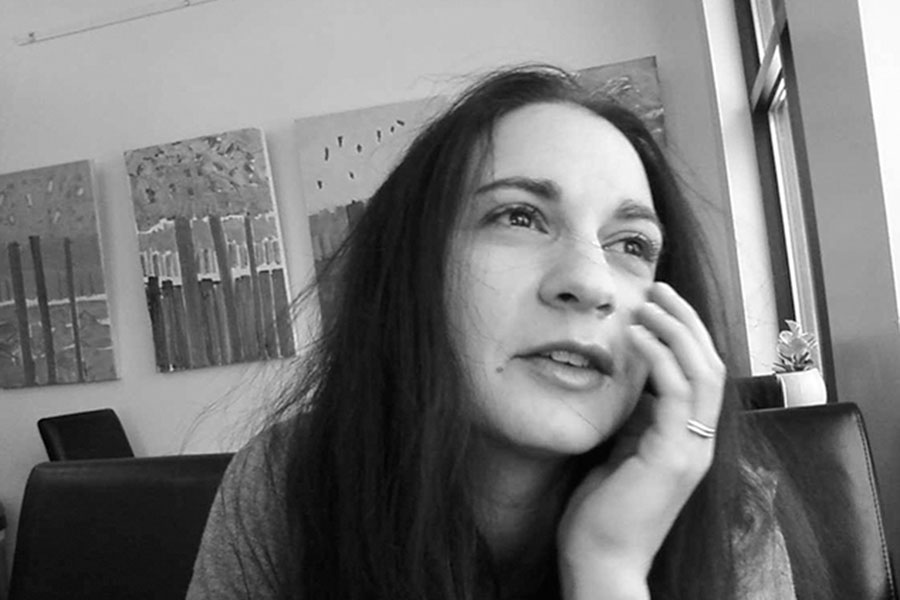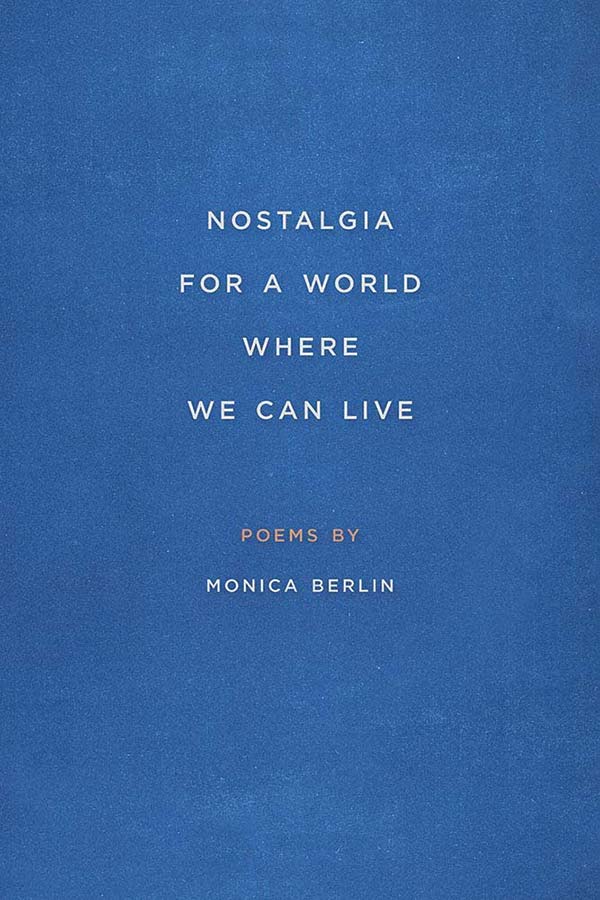

Monica Berlin ’95, Richard P. & Sophia D. Henke Distinguished Professor of English at Knox College, passed away on November 4, 2022. Please enjoy the poem below in her memory.
Just Before the Blood Draw the Other Morning, I Filled in Small
circles on a form, rating likelihood on a scale of one to five:
how likely I was to notice that I was aware of the action of my heart
in the absence of physical exertion (e.g., the heart missing a beat). No space
allowed to say I’m always aware of the action of my heart, always aware
of absence, holes, the turning of a doorknob, a shadow moving
against glass, the light, even imagined, someone going away.
The form didn’t ask how often I think about the heart, mine or
yours, or the now-healing poet’s in Texas, or the scavenged one
of that beast my friend in Michigan is watching early this morning,
late spring, though the sky’s still February despite magnolia petals in
the driveway. There’s an opossum here, too, but I ignore his mean,
prehistoric face, cover the trash cans, think instead of the raccoon, that
milder primitive fella, I once saw splayed on the roadside, handlike paws
tucked beneath his chin, as in prayer. It’s an image from which I’ve never
recovered, & this morning, returned again, when, helpless, I watched
a car about to be hit by another in an intersection I always fear, &
helpless to stop it from happening, threw mine into park, felt my hands
rush up to cover my own eyes, as if not-seeing would stop what I couldn’t,
would alert someone to the peril of every day, which is one of the impossibilities
of our lives, the things we can’t stop, the things just ahead of us on the road,
physics at work, without us, without any of us, just the fierceness
of everything not ours to control. It’s too late to say I was trying to be
honest on the form. No sense lying about the heart. But there wasn’t room
enough to say how, when I said I’d give the poet mine, I meant it.
No room to say when the poet was wheeled in to surgery, I slipped
under, murmured to a friend passing by, You know how to pray. Said, please.
What I also didn’t say: I once walked into a hospital to find doctors
slamming paddles to my father’s chest, the room overturned, his body
stripped bare. Too late to say when my father’s heart gave up, &
the doctors had to let it, in me there were no prayers left. Too late:
I never prayed again. But about the prayers of others, the way any
body might, in grief or fear, turn toward prayer, always in the hands,
that tucking in against disaster—? I never know if it’s too late,
especially not on a form that leaves no option for a change of heart
—Christ, they’re only handing out pens, & cheap ones at that—that
here’s the thing about the heart: sometimes it breaks, & we go on;
sometimes it breaks, & we can’t go on; sometimes the surgeons
can patch a hole, clear the path to it; sometimes the paddles; sometimes
it takes a boy once in a car on a road to nowhere in Oklahoma somewhere
spilled out on gravel. The problem of the heart: there’s no easy way
to repair the one we’re given. Only dumb luck or great tragedy, the deepest
sorrows, a head-on crash through an intersection into a tree & an airbag
deploying to protect what will be lifted in a tightly sealed box, then driven
at safe speeds, in a truck, through the night, on an emptied-out highway,
one so desolate that even those thieving roadside critters don’t bother
to scour. Everything out of our hands: the trains halted then rerouted
after a collapsed bridge, another empty downtown Main Street razed,
a boy once in a car in Oklahoma, the rivers rising, detours, so many
detours. What more is there? This kind of direct address to the human
heart. These stretches of wide-open forever, scarcely seen or seen again.